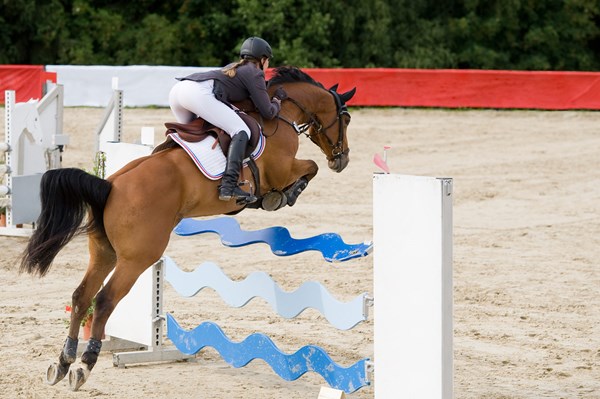 Credit: Thinkstock Preliminary results in humans seem to support the hypothesis that tea, and green tea in particular, can improve mood and exert a calming effect.
Credit: Thinkstock Preliminary results in humans seem to support the hypothesis that tea, and green tea in particular, can improve mood and exert a calming effect.Tough day? Have a cuppa, a brew, some char. Green tea in particular is known for its myriad health benefits in humans, and an increasing amount of research suggests that horses can also reap the rewards of green tea in the form of nutritional supplements containing green tea extracts (GTEs).
“The major components of green tea and green tea extracts include a group of chemicals called catechins, such as epigalocatechin gallate (EGCG), as well as caffeine and the amino acid theanine, which is a building block for proteins,” shared Kathleen Crandell, PhD, a Kentucky Equine Research nutritionist.
According to Antioxidants in Sport Nutrition, edited by Manfred Lamprecht (CRC Press, 2015), some of the purported health benefits of green tea and GTEs include the “prevention of diseases associated with free radicals and reactive oxygen species, such as cancer, or cardiovascular and neurodegenerative diseases. In addition to the antioxidant properties of the catechins, their antidiabetic, antibacterial, anti-inflammatory and anti-obesity activities also have been reported.”
Specific to horses, a handful of oral joint health supplements are beginning to include EGCG for its anti-inflammatory properties, and some calming nutritional supplements contain the amino acid theanine.
Likely due to the costs associated with equine research, few studies have been done on the use of these supplements in horses. A recent review* in human medicine, however, reported that the combination of caffeine and L-theanine were associated with increased alertness and attention-switching accuracy. Another study** found that “tea consumption has acute benefits on both mood and performance in real-life situations.”
“More research in horses is certainly warranted to specifically study the health and safety issues associated with nutritional supplements containing GTEs and theanine, but preliminary results in humans seem to support the hypothesis that tea, and green tea in particular, can improve mood and exert a calming effect,” suggested Crandell.
Other ingredients used in commercially available calming agents include magnesium and tryptophan, which might help foals prior to weaning and competitive horses prior to transport, for example.
As appealing as natural remedies are to many horse owners, Crandell does warn that products containing green tea or GTEs may contain caffeine, which could be problematic for horses used in competition. As a precaution, it is best to check with governing organizations to make sure a product is suitable for use in competition horses.
*Camfield, D.A., C. Stough, J. Farrimond, A.B. Scholey, A.B. 2014. Acute effects of tea constituents L-theanine, caffeine, and epigallocatechin gallate on cognitive function and mood: A systematic review and meta-analysis. Nutrition Reviews. 72(8):507-522.
**Einöther, S.J. and V.E. Martens. 2013. Acute effects of tea consumption on attention and mood. American Journal of Clinical Nutrition. 98(6 Suppl):1700S-1708S.
Visit equinews.com/newsletters to subscribe to The Weekly Feed, KER’s award-winning equine nutrition newsletter.



